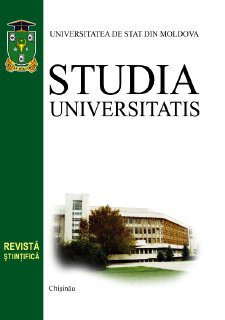JAN AMOS COMENIUS ŞI FILOSOFIA EDUCAŢIEI (1592-1670)
Ionuţ VLĂDESCU Universitatea „Andrei Şaguna”, Constanţa (România)
Rezumat
The spirit in which Comenius sought to write the unfinished work known as the ‘General Consultation’ was the best proof that the art of teaching was intended to be the core of ‘pansophy’ itself; it also, incidentally, accounts for the failure of the enterprise. Instead of building up in the abstract that total, indivisible body of knowledge, that universal science that was to be pansophy - the doctrine of the progressive achievement of the ‘world of ideas’ within the super- imposed worlds whose parallel strata form the universe - Comenius was forced, because he was pursuing a didactic as well as a philosophical aim (and this, by the way, is the most interesting aspect of the work), to make simplifications and assimilations which finally proved too much for him. He wished to construct his own system, but he also cherished the ambition of providing a kind of introduction to philosophy for all. Such an undertaking was unique in the seven- teenth century. Hence the same problem: how are we to explain this merging of the need for a systematic basis for education with general philosophical speculation? There is another difficulty. The foreword to The Great Didactic contrasts, with calm daring, the a priori method the author intends to follow with the empirical or a posteriori teaching experiments characteristic of the educational work of his predecessors. We venture to promise a Great Didactic ... the whole art of teaching all things to all men, and indeed of teaching them with certainty, so that the result cannot fail to follow… Lastly, we wish to prove all this a priori, that is to say, from the unalterable nature of the matter itself … that we may lay the foundations of the universal art of founding universal schools. But this promise of an a priori science of education, an ‘enormous’ undertaking, as Comenius himself admits, seems to come to nothing when we seek the basis for this science teaching, for example, and find that Comenius is content with the theory of sensation: ‘the truth and certainty of science depend more on the witness of the senses than on anything else’, or ‘Science, then, increases in certainty in proportion as it depends on sensuous perception. There often seems to be some contradiction between the general principles the author proclaims and the quasi-sensualistic empiricism of so many of his formulae. Here again, it must therefore be assumed that there is an original connection between these some- what irreconcilable statements, and that there is a synthesis linking man with nature so as to show why the educative process is the keystone of this philosophy. But there is still more to the problem. Education, according to Comenius, is not merely the training of the child at school or in the home; it is a process affecting man’s whole life and the countless social adjustments he must make. Society as a whole is considered by Comenius sub specie educationis. The great principles of peace and the international organization of education that make him a forerunner of so many modern institutions and trends of thought likewise stem, in his work, from this unique synthesis between nature and man, which we have just suggested as the central element of his speculation and as the explanation of the mystery of an educationist’s philosophy in an age when education was a matter either of techniques unsupported by theory or of general observations without any attempt to constitute a science of teaching or education. The key of these difficulties can be discovered only if we can find more complex basic concepts in Comenius’ philosophy than those which are ordinarily taken as sufficient - concepts whose very pattern is such as to make it possible to restate the central ideas of the system in modern terms. This explains the twofold impression of outmoded form and up-to-date substance which one continually receives when reading the great educationist’s works.

